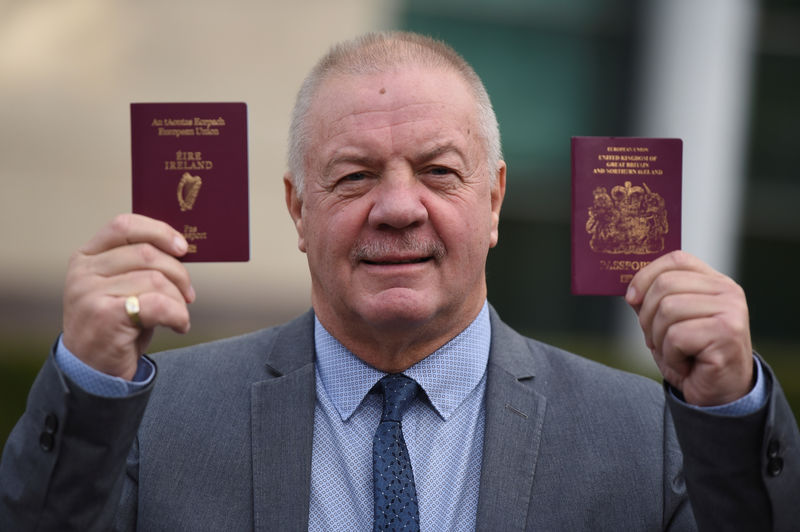By Amanda Ferguson
BELFAST (Reuters) - A Northern Irish rights campaigner whose case against Britain leaving the European Union without a deal was dismissed by the Belfast High Court last week succeeded on Monday in joining two other challenges before the United Kingdom's Supreme Court.
Raymond McCord, whose son was murdered during Northern Ireland's three decades of sectarian bloodshed, will challenge Prime Minister Boris Johnson's suspension of parliament in the UK's highest court on Thursday, his lawyer said.
McCord had sought to challenge the suspension of parliament in Belfast but the court decided instead to hear his wider case against a "no-deal" Brexit. A judge dismissed that, saying the issue was political and not for the courts.
The London parliament was prorogued, or suspended, last week until Oct. 14, a move opponents argued was designed to allow Prime Minister Boris Johnson to carry out a no deal exit from the U on Oct. 31 with little scrutiny.
"Mr McCord pleads that prorogation is not only unlawful but is also unconstitutional due to its prejudicial and oppressive effect on the people of Northern Ireland in particular," McCord's lawyer Ciaran O'Hare said in a statement.
Scotland's highest court of appeal ruled last week that Johnson's decision to prorogue parliament for five weeks was unlawful and should be annulled, a verdict that his government will appeal the UK's Supreme Court from Tuesday.
A separate legal challenge to the suspension, brought by British campaigner Gina Miller, will also be heard by the Supreme Court on Tuesday.
An appeal by McCord against the dismissal of his no-deal case also began on Monday at Belfast's Court of Appeal, the next step in the British-run region's justice system.
Lawyers for McCord had argued that a divorce from the EU without a deal to smooth the transition for Britain would breach the 1998 Good Friday Agreement that largely ended violence between Irish nationalists seeking a united Ireland and pro-British unionists. Some 3,600 people died in the conflict.

Although Britain voted as a whole by a 52%-48% margin to leave the EU in a 2016 referendum, a majority of people in Northern Ireland voted to remain in the bloc.